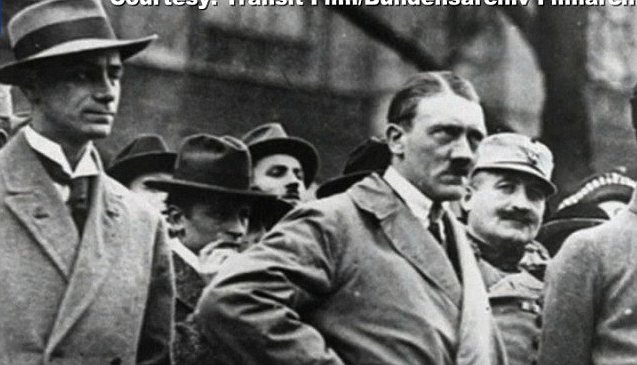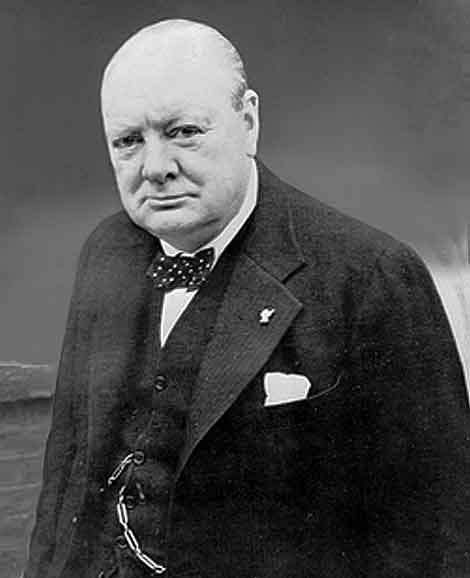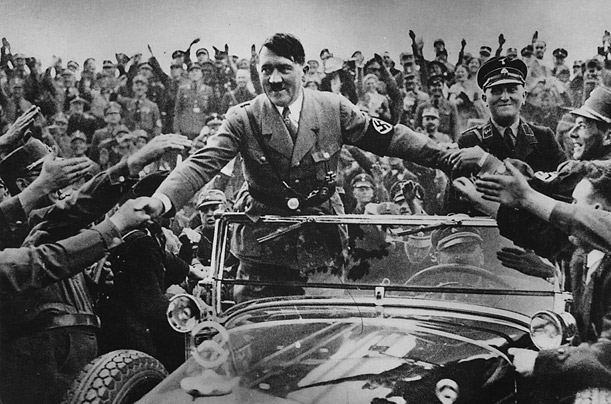Who was the democrat Winston Churchill (1874-1965) or Adolf Hitler (1889-1945)? (For those readers who do not recognise these names, stop here and turn on 7MATE, the two of you deserve each other.)
Wait! Before answering think! What does ‘democracy’ mean?
Most of the time, most people think ‘democracy’ means voting, voting, voting, and counting the votes. Journalists intone the solemnity of leaders submitting themselves to vox populi. Well, the voice of the people, since most would not dare use Latin, even if they knew it.
If voting is the criterion, how do Churchill and Hitler compare?
Short answer: Hitler led his party in far more elections than Churchill did.
Hitler was a candidate for chancellor in five national elections between 1928 and 1933. In those parliamentary elections the vote for his Nazi Party grew from 3% to 44%. He heard the voice of the people. In addition, he led his party in elections in several German states in that period. Moreover, he held a plebiscite in Austria to confirm the Anschluss (the unification of German and Austria).
 Hitler campaigning in 1932.
Hitler campaigning in 1932.
Churchill, the great war leader and champion of democracy, became Prime Minister in May 1940. There was no vote. The Conservative Party changed leaders. There was no election in Great Britain during World War II (though there were in Australia, Canada, and the United States). The last general election in the United Kingdom had been in 1935. Churchill’s government decided not to call the elections due in 1940. Imagine the fuss a shock-jock would make of an incumbent government not facing the scheduled election. Horror! Outrage! Cliché!
Only in 1945, after the European War was over did Churchill call an election, and he lost, and lost decisively. (He remained leader and led his party to victory in 1949, that being the only election he won as leader.)
 The 65-year old Churchill on his first day as Prime Minister in 1940.
The 65-year old Churchill on his first day as Prime Minister in 1940.
Yet, I would say Churchill’s claim to the title of democrat is greater than Hitler’s. Why?
First, Hitler campaigned in election-after-election AGAINST democracy. He proclaimed the idiocy of choosing leaders by votes and promised to do away with elections, once he had the authority to do so. He was explicit and overt about this. Elections counted the votes of Jews, bankers, women, trade unionists, Gypsies, homosexuals, cripples, and others equal to Aryan votes. ‘Stop that at once!’ he declared. He used the campaigns to air his views, identify, educate, mobilise, and license supporters. As the strength of his party grew in 1932 he unleashed those supporters to intimidate voters, forge ballots, burn ballot boxes from Jewish quarters, threaten voters at polling booths…
These are the facts.
We might speculate that had Hitler called an election in August 1940, November 1941, March 1942, even in February of 1944, he would have won easily and by a big margin. Here is a guess, he (and the Nazi Party) might have garnered 80% of the vote or more. There was after all no opposition left but we could imagine that one of the conservative agrarian parties that merged with the Nazis in 1930 breaking away as the opposition, against them Hitler’s victory might have been 90+%. The contrast is Churchill who called an election in July 1945 and lost while the Asian War continued.
 Hitler greets the people after being sworn in as Chancellor.
Hitler greets the people after being sworn in as Chancellor.
Second, Churchill’s claim rests principally on his unstinting respect for and use of parliament during the war years. First he formed a national war cabinet by including the Labour opposition, and second he submitted himself and his government to parliament which remained supreme, though the mandate of its members had lapsed. He explained and justified his actions in parliament, and he replied to questions and criticisms. He permitted the criticisms in the first place. Churchill kept and respected the institutions of British government, including the courts, whereas Hitler fused authorities and abolished institutions, reducing everything to personal loyalty to him in the army oath, and executive orders. It is this respect for and adherence to procedure, process, and practice that adds credit to Churchill’s democratic account. Of course, it is true that there were compromises in the name of the war effort and security, and some of the constraints were probably unnecessary when judged in the cold, clear light of hindsight, but the fundamental institutions remained; there to be re-awakened.
In so doing, Churchill left the democratic culture of Britain undiminished. Men and women grumbled about the government, questioned the need for rationing, complained about health care, suspected profiteering, and wrote letters expressing their vexations to members of parliament, to the BBC, and to newspapers. Newspapers picked away at the foibles and mistakes of government ministries. During the height of the Battle of Britain, during all-clears orators on the ladders in Hyde Park, London, excoriated the British government for its continued hold on India. This was all constrained but compared to Germany after 1933 it was a riot of freedom.
By the way, there was a great deal of opposition to Churchill, within his own party for a start. He was too belligerent many thought, including the first of his foreign ministers. Some Conservatives wanted him to fail and be replaced by a more pliable figure. Theirs was a whispering campaign, true, but it would have been exterminated in Germany, whereas Churchill combated it though parliament.
Conclusion? Voting alone does not democracy make. A small conclusion it might seem but it has major implications.
Skip to content
